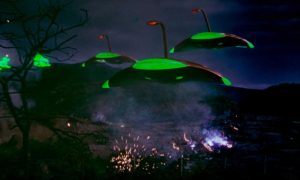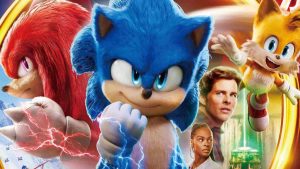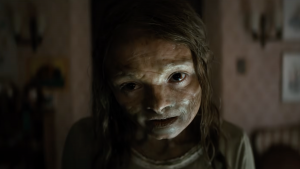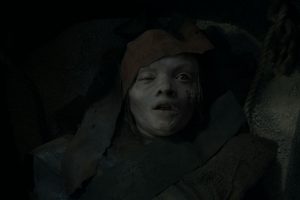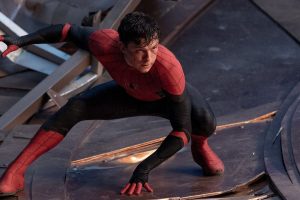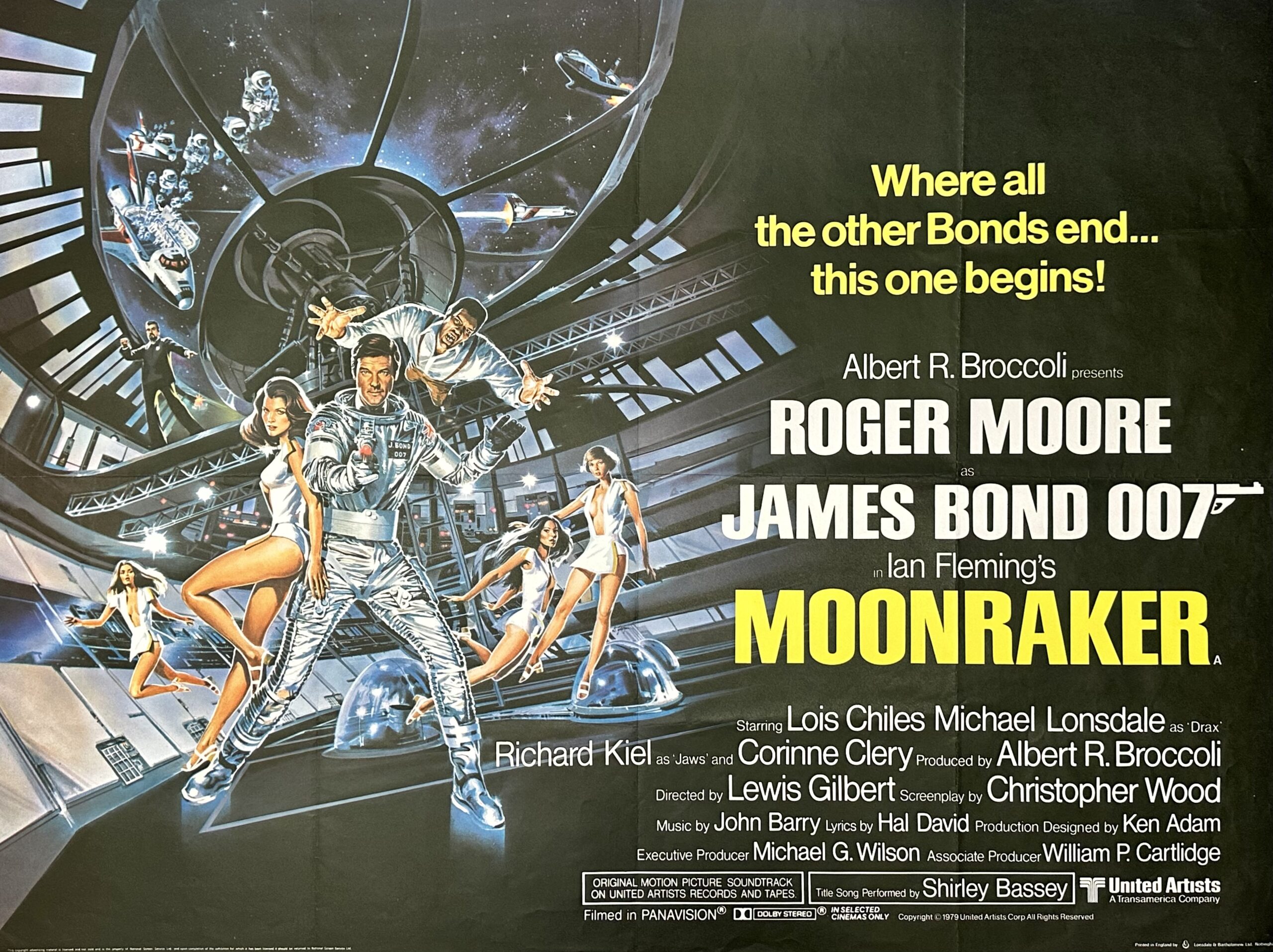
Moonraker – Behind The Scenes
After a massive period of upheaval, both in front of and behind the camera, The Spy Who Loved Me was a smash-hit with both critics and at the box office.
Roger Moore had only been secured as 007 for a three-movie contract. After the successes of Live And Let Die and The Spy Who Loved Me (The Man With The Golden Gun underperformed between them) there was no question of bringing Moore back. For Your Eyes Only was announced as the next Bond adventure in the closing titles of The Spy Who Loved Me.
Moore negotiated hard and secured a good deal to return. For Your Eyes Only was in development, but the same summer that The Spy Who Loved Me was released, the world of cinema was changed forever by a little movie called Star Wars.
Suddenly, space and anything to do with space was the thing. Cinema audiences went space mad.
With NASA also at an exciting stage of the development of their brand new space shuttle, the producers decided to pivot. Combing through Fleming’s catalog for something they could adapt to take advantage of this big trend, they settled on Moonraker.
In the novel, Hugo Drax is a surviving Nazi agent and industrialist who wants revenge on Britain. He has developed Moonraker, a world-beating ICBM, and is feted as a hero by the British establishment for giving Britain a serious Cold War advantage with his technology.
His nefarious plan is to use the cover of a full test to target London while he escapes. The novel is a detective story, with Bond uncovering the plot layer by layer. The whole story takes place in the South-Eastern region of UK, the country of Kent.
There is a villain’s lair near Dover and a car chase through Maidstone town centre. This was not going to cut it on the big screen, however. They needed more. The call went out to Tom Mankiewicz once again.
Mankiewicz wrote a short outline for Moonraker that was mostly discarded. Some scenes from Mankiewicz’s script would go on to be used in subsequent films, including the Acrostar Jet sequence, used in the pre-credit scenes of Octopussy, and the Eiffel Tower scene in A View to a Kill.
Christopher Wood, one of the screenwriters of The Spy Who Loved Me, was brought back to further develop the story and build out the script.
Meanwhile, the search for a director was underway. In 1978 Steven Spielberg offered to direct the film after the release of Close Encounters of the Third Kind, but Cubby Broccoli turned him down.
While lamenting this rejection on vacation with his friend George Lucas a year later, Lucas told him of another hero he had developed – Indiana Jones. This would lead to Raiders Of The Lost Ark.
Eventually, Bond veteran and safe pair of hands Lewis Gilbert returned as director. Given the fast pace of production, it made sense, especially after the pivot away from For Your Eyes Only.
With Moore secured by way of a one-movie negotiation, thoughts turned to the casting of the villain. The late 1970s were a turbulent political time in the United Kingdom. A left-wing Labour Prime Minister, Jim Callaghan, had left the country with a punishingly high tax regime.
He was forced to go to the country after his government lost a vote of confidence, the election that would eventually usher Margaret Thatcher into power.
To escape this crippling tax burden, production was shifted to France. Both Stewart Granger and Louis Jourdan were considered also for the role of Drax, but British actor James Mason was cast.
Once the decision was made that the film would be an Anglo-French co-production to take advantage of better tax in France, French actor Michael Lonsdale was cast as Drax, with Corinne Cléry as Corinne Dufour, to comply with the qualifying criteria of the agreement. Jourdan would later portray Prince Kamal Khan in Octopussy.
The Bond crew did run into some friction with the French crew, however. The French style of filming was to begin at 11 a.m. and shoot through until 7 p.m. They also didn’t do overtime. Ken Adam told the foreman that he couldn’t force anyone to work overtime, but he had never been involved with a Bond film that did not require it.
The French foreman was absolute, however. He said his people would not be coming in on weekends. In this, he was proven wrong. Once the French crew saw the amazing sets Ken Adam created, they not only came in on weekends, but they brought their families with them, as well. Adam’s work on Moonraker is truly spectacular, and it made the French workers excited to be part of the process.
Lois Chiles was originally offered the role of Anya Amasova in The Spy Who Loved Me but turned it down to take temporary retirement. Jaclyn Smith was the first choice to play Holly Goodhead but had to pass due to scheduling conflicts with Charlie’s Angels.
This allowed Chiles a second chance at Bond, which is appropriate because she basically got the role by chance. She ended up seated next to Gilbert on a flight, which led to her casting.
The original plan was for Richard Kiel’s Jaws to die by shark at the end of The Spy Who Loved Me. He was so popular they saved him in a late change of plan so they could bring him back. In Moonraker, he was supposed to remain a villain and adversary of Bond until the end.
Lewis Gilbert claims he received so much fan mail from children saying: “Why can’t Jaws be a goodie, not a baddie” that the decision was made to allow Jaws to switch sides.
Lois Maxwell’s 22-year-old daughter, Melinda Maxwell, would appear as one of the “perfect” human specimens from Drax’s master race, a nod to the Nazi origins of the character from the book.
This would be Bernard Lee’s final portrayal of M. Sadly he was diagnosed with stomach cancer in 1980, and passed away in 1981 just before filming his scenes in For Your Eyes Only.
Lee was a wonderful addition to the Bond movies. He was loved by viewers and peers alike. Desmond Llewelyn said one of his fondest memories of Lee was a dinner that never happened during the filming of Moonraker. On the way out of the hotel, Lee spotted a piano in the hotel lobby.
Unable to help himself, he sat down to play and soon drew an audience. Llewelyn reminded Lee of their reservation. Lee told him to go ahead; he would catch up. Llewelyn went to eat, but Lee never showed. When Llewelyn returned to the hotel, Lee was still at the piano, playing for his appreciative, spontaneous audience.
Broccoli, now flying solo and free, continued the approach that served him so well in The Spy Who Loved Me, go big, then go bigger, and put every single dollar on the screen.
Huge swathes of the movie were to be shot on location, in the actual cities of London, Venice, and Rio De Janeiro. An early filming unit had already been in Rio in 1978 to capture carnival footage for the movie.
When all was said and done, the budget for Moonraker came in at $32 million. This was more than the first six movies combined. Broccoli was nonplussed by that number. He said, “That’s a lot, but there you are, you see. Things cost a lot of money if you want to do them right.”
Roger Moore’s first scenes filmed as Bond in Moonraker were the Rio sequences. He was several days late arriving due to an attack of kidney stones. Upon arrival, Moore was immediately taken to make-up and then put back on the same Concorde he had arrived on to shoot his arrival as 007.
Then they filmed the exteriors of the cable car sequence, where screen work and interiors were to be some of the very few scenes to be completed at Pinewood.
During this sequence, stuntman Richard Graydon slipped and narrowly avoided falling to his death. For the scene in which Jaws bites into the steel cable-car cable with his teeth, a stunt cable was constructed of licorice.
Shooting then moved on to the Iguaçu Falls for the speedboat sequence. They were originally going to send a real boat over the falls. However, it became wedged on the rocks and they had to revert to a miniature.
The exterior of Drax’s pyramid headquarters in the Amazon rainforest was actually filmed at the Tikal Mayan ruins in Guatemala. The interior of the pyramid was designed by Ken Adam at a French studio. According to Mankiewicz, footage shot at Drax’s lairs was considerably more detailed than the edited result in the final version.
The Vehicle Assembly Building of the Kennedy Space Center, Florida, and the Rockwell International manufacturing plant in Palmdale, California, provided the scenes showing the Moonraker shuttles under construction.
Since the real space shuttle program had not been launched at the time of filming, miniature supremo Derek Meddings and his team had to create the rocket launch footage without any real-life reference.
Shuttle models attached to bottle rockets and signal flares were used for take-off, and the smoke trail was created with salt that fell from the hollow models.
The final scenes of the space station disintegrating were created by Meddings and other members of the special effects team shooting the miniature model with shotguns.
Meddings also made use of the “wind-back” method for some of the space shots. Originally, the production crew contacted American special effects companies to do the space shots. They came back with a very high estimate, plus a request for two percent of the profits. Broccoli told them to go pound sand and turned it over to Meddings.
The “wind-back” method means shooting one element, winding the film back, and then shooting another element. This created lots of complications. For example, one had to avoid overlap of the objects. Stars had to be faded out as objects passed over them, etc.
One piece of film ended up going through the camera 48 times (96 if you count the wind back). With each take, the pressure mounted. With one screw up, they’d have to start all over again.
It all paid off in the end. Despite these extremely primitive techniques, Meddings and his team were nominated for the Academy Award for Best Visual Effects for Moonraker.
The pre-credit sequence is a highlight and set the tone for just about every parachute jump stunt scene to come afterward in movie history. Second unit director John Glen shot the sequence above Lake Berryessa in northern California.
Skydiving champion B.J. Worth developed special equipment for the scene, which included lightweight cameras, special plastic lenses, and a 1-inch-thick (25 mm) parachute pack that could be concealed beneath a suit.
Worth plays the pilot who has his ‘chute taken away by Bond. The scene took a total of 88 skydives by the stuntmen to be completed. Worth and his team would go on to become Bond series regulars after their efforts in this sequence.
The idea for the pre-title sequence came from Michael Wilson. He was also integral to the filming of it, as well. One problem they had to solve was the weight of Panavision cameras. If a skydiver wore one on his helmet, his neck would break when his chute deployed. While in Paris, Wilson visited a camera shop. He saw what looked like a lightweight Panavision lens.
It turns out it was a prototype that somehow ended up in the camera shop. That, in conjunction with a titanium housing, allowed skydivers to bring about 100 feet of film with them for each dive. Second unit director John Glen would then immediately edit the footage and lay out what shots they needed for each jump. To further cushion the chute deployment on the cameraman’s neck, the parachute lines were wrapped to allow for a slower opening.
Despite using science to help with filming, Moonraker never forgets to have fun with its own sci-fi pretensions. For the scene where Bond arrives at the pheasant shoot, a trumpet sounds the first three brass notes from Also Sprach Zarathustra, used in the movie 2001: A Space Odyssey. When Bond enters the lab in Venice, he uses the tonal sequence from Close Encounters Of The Third Kind to access the facility.
Moonraker premiered on 26 June 1979 at the Odeon Leicester Square in London. It divided critics, with some saying the movie was simply fun, but others savaging it for its outlandish premise and over-the-top action.
One thing that does start to stand out in this movie, over many others, is the level of product placement. All the world’s top brands wanted to be associated with Bond and the movies generated huge production income from this. In Moonraker, it really starts to become noticeable. In his scathing review of the movie from 1979, Gene Siskel of the Chicago Tribune drew attention to this:
In the beginning of the Bond series, before they were thought of as a series, each film was a good action picture with a colourful, entertaining hero.
Today, they come off as conglomerate business enterprises rather than movies. How else does one explain the intrusive commercial plugs in Moonraker for Christian Dior perfume, British Airways, Bollinger champagne, Glastron boats, and Seiko watches? Truly, money derived from these plugs can’t be worth the loss of story continuity when the products are flashed in front of the camera. Someone is being awfully cheap about the plugs, which borders on incredibility because the James Bond series is one of the surest moneymakers in the film business. Maybe the producers of Moonraker are blind to story construction?
That certainly would explain the film’s failure.
This did nothing to deter cinema-goers who flocked to see it, making it the top-grossing Bond movie ever, all the way until GoldenEye in 1995. All told, Moonraker took in $210 million.
Do You Expect Us To Talk?
Stark: There is no other way to put this, but Moonraker is a dumb as a bag of wrenches, but at the same time highly entertaining and incredibly loveable. It’s stupid. It knows it’s stupid, and it just doesn’t care. It’s impossible to truly hate this movie. It’s basically the Labrador of Bond movies. This movie is also absolute, undeniable proof that we are living in a simulation.
Wrenage: You have dreams of Keanu Reeves in a trench coat and sunglasses, carrying roses and flying through your window singing Moonraker, too!?
Stark: Er…no, the proof I speak of is Dolly’s braces. Perhaps the biggest Mandela effect in all of human history. I don’t care who tells me or what evidence they try and give about witness testimony that Jaws’ girlfriend Dolly didn’t have braces on her teeth. She just did! I know it! Nothing is ever going to persuade me otherwise.
Wrenage: I always thought Dolly’s imperfection was her deformed chest. You can’t build a master race with women who will have lower back pain before their mid-thirties. They would never be able to handle the laundry baskets of the Lebensborn homes.
Stark: I am telling you, she had damned braces! He smiles at her, she reveals metal teeth of her own. That was the whole damned point. I simply won’t have any different. I know what I saw. That isn’t all, either. Further proof of weirdness is afoot with Moonraker, as well. I know, just KNOW that this was the first Bond movie I ever saw in the cinema.
Yet the first Bond movie I ever saw was The Spy Who Loved Me after it premiered on TV… but Moonraker was released in June 1979, and The Spy Who Loved Me didn’t premiere on TV until 1982. How is this even possible? How, Wrenage, HOW?
Wrenage: Obviously, you have an alternative self who traveled back in time and changed your future. You should probably get yourself a DeLorean to solve this dilemma. This actually makes a lot of sense because my memory of you is that you are a professional test screener married to Gal Gadot. Your alternative self did you dirty, my friend. Normally, I’m not for what happened to Ron Silver in Timecop, but in this instance, it is probably warranted.
Speaking of which, you know how The Spy Who Loved Me is the first Bond movie you saw? Moonraker is the first James Bond movie I saw, and I saw it in the theater to boot. I was just a wee lad, full of optimism and…wee, probably, but I distinctly remember the pre-title sequence and regaling fellow kids about it the following week. That was probably the coolest I ever was… The only other part I remember from the theater experience, aside from some of the laser play at the end, was how much the demise of Corinne Clery frightened me. That sequence of dogs chasing her down feels like it belongs in a Hammer film.
Stark: Yeah. It builds really disturbingly and somehow the implied violence, off-screen violence of it makes it even worse.
Ranking And Rating
Let’s get to the ratings and rankings. Wrenage and Stark will give their opinions on the Bondian elements found in Moonraker and come up with a score and ranking to place this appropriately in our league table of all things Bond.
Bond
Stark: Well, what can you say about Sir Roger Of Moore by this stage? His weathered face, high-waisted trousers, and dare I say more rotund midriff were starting to develop by this stage. He was two years older than Connery and it started to show here for the first time. His interpretation of Bond was also about to complete its journey toward the kind of parody that gave us Austin Powers before Austin Powers was even a thing. Yet, like the movie itself, you just love the guy.
Wrenage: Bond has a few good moments in Moonraker. The way he handles the pheasant-shoot assassin is a great gag, but a quietly greater moment is after Bond exits the centrifuge. He is on the verge of passing out, yet he shrugs off Goodhead’s help. Moore did a nice job selling Bond’s toughness in that scene. You also have to give him credit for not being afraid to look silly when his features are getting distorted by the g-forces. Moore held the air horse and directed it on his face himself in that scene.
Overall, Moonraker is not a spectacular rendition of Bond, but it’s not terrible either. Moonraker gets static for being too goofy, yet, upon watching it again, I was surprised that Bond is not the guilty party when it comes to the worst offenses. Most of the goofiness happens around him.
Stark: I am always surprised, on a revisit, by Moonraker. Up to, and including Venice, it’s a solid 007 and international espionage outing, except for that f*cking pigeon of course, and the gondola.
Bond Girl
Stark: I fancy Corinne Cléry more than Lois Chiles, but I think that is because many foreign exchange trips at high school left me with a weird and adolescent crush on women with a French accent. I feel like once again, as with The Spy Who Loved Me, I am in danger of revealing too much here.
Wrenage: Yikes. I probably shouldn’t have said “wee” twice earlier. I likely inadvertently activated your French-accent button. If there are any French maids reading this, you should probably back off to a safe distance while we draw Stark an ice bath.
Speaking of ice, Lois Chiles has an icy demeanor, and it is not limited to her appearance in Bond. I honestly can’t think of a Lois Chiles role where it seems like she has chemistry with anyone. She always comes off as aloof and superior. In this case, it works, though. Astronauts are supposed to be cool and calculating. Goodhead is maybe the most trained Bond girl in the films. She can fly space shuttles. She can shoot freakin’ laser beams. She also has gadgets. She can judo-chop!
Meanwhile, Corinne Clery always reminded me of a French Jessica Lange. I wonder how a French King Kong movie would look. Kong could climb the Eiffel Tower. Maybe step on a pastry shop. We definitely know he wouldn’t die at the end because he would just surrender when the biplanes showed up…
Stark: Sacré bleu! C’est un singe gigantesque !
Wrenage: Stark can speak French? Actually, this explains a lot…
Villain
Stark: Controversial opinion there… I think Michael Lonsdale as Hugo Drax might actually be, in my opinion, the best on-screen Bond villain of all time. He’s not in the best movie, but he just pisses excellence in the role. He drips menace, with a glorious dollop of sheer disdain for Bond (and, in fact, humanity) that only a Frenchman like Michael Lonsdale could pull off.
His line delivery is exceptional and his drollness just adds to it. I could watch clips of him dissing Bond and declaring afternoon tea as Britain’s sole contribution to culture all day long.
Wrenage: You get no disagreement from me. I love Drax. It would be interesting to get some insight from Lonsdale on his thought process for creating the character. Drax comes off as on-the-spectrum. He doesn’t offer much of anything but a stare, an antiseptic detachment and a cutting remark. It is a pretty confident performance. Lonsdale is content to be a hunk of meat speaking in monotone, for the most part.
My favorite Drax instance is maybe when Bond thwarts the would-be assassin during the pheasant hunt, and Drax’s reaction is total unimpressed disdain. He could be a psychotic Oliver Hardy in that moment, reacting to something Stan Laurel did with infinite, aggrieved patience. At the same time, Drax does have a bit of rock-star to him, the way he always has two babes at his beck and call. He also was quite progressive for a megalomaniac. His master race looked to be built from all creeds and colors.
Stark: I often wonder what those people were told? Were they in on the gig? Or did they think they were having a free holiday in space? Back to Drax, he also gets points from me because he’s got an entire army of henchmen with cool helmets. That goers a long way in a Bond movie.
Wrenage: Jaws, on the hand, suffers some in Moonraker. He is an agent of a lot of the maligned goofiness. He was a genuine, intimidating presence in The Spy Who Loved Me. Here he is a punchline. It also looks like Kiel let himself go in between films. He was pretty trim in his first appearance, but he looks a bit bloated in his callback. It’s not easy being a big guy, though. Who knows where he was at on his personal journey through joint-pain when Moonraker was filmed?
Plot
Stark: I really respect their ability to totally turn on a dime here. Bin off For Your Eyes Only and grab the space shuttle straight out of the headlines, crafting the story around that. However… you can’t quite ignore the fact is basically a less wet re-tread of The Spy Who Loved Me, which itself was a loose remake of You Only Live Twice.
Wrenage: I enjoy the gonzo grandeur of the plot. I don’t think Bond would dare to get this stupid again until maybe Die Another Day?
Stark: Ahhhh, Die Another Day. Also a schizophrenic Bond film that is itself based on the novel Moonraker. More on that later in the series…
Wrenage: The way they wholeheartedly embraced and went for things is inspiring. For example, they don’t just have a space shuttle. They have multiple space shuttles, and they show all of them launch. The ambition to do all of that practically is marvelous. These guys truly loved to work. Ken Adam’s sets also help sell the lunacy. No matter how kooky things get with the plot, it all looks so good that you buy into it. Drax is trying to kill everyone on Earth with poison flowers while launching beautiful people into space to make him his very own troop of Hitler Youth. Sure, why not? Looks legit!
Action Sequences
Wrenage: There aren’t really any standout action scenes to me, other than the opening and the Thunderball-in-space laser battle. The chaotic nature of the finale great. Guys are getting blasted and flying all over the place. A ton of stuff happens in the climax on a super-accelerated schedule. Bond and Goodhead disable the anti-radar system and a shuttle full of space commandos are on the scene about five minutes later in what is basically real-time at that point of the movie. None of that makes a lick of sense. A space commando would probably take an hour just to put on their underpants.
Stark: That was the dream though, wasn’t it? No doubt it was what Rockwell sold to NASA for the shuttle design, and that was what NASA sold to the US government back then for the funding. It was a space truck. A hauler. You could get in it and pop off into space to launch a few satellites as quickly and easily as jumping into a big rig to deliver a truck full of feather mattresses on a Sardinian mountain road! It was going to make going into space an everyday occurrence. Launch a few dozen space marines into orbit to stop a megalomaniac mad man? Sure, see you in 30 minutes.
Wrenage: The canal chase is hindered by goofiness. The coffin gag and the gondola captain who goes down with the ship are awkward. Throw in double-take pigeons on top of a hovercraft gag that is a bit too far into excess, and it all comes off as maybe trying a bit too hard. But, hey, at least we get Wine Guy again! The fisticuffs are mostly good, however. Bond’s fight against Chang is fun. At one time, that scene held the record for most breakaway glass used in a fight. As for the cable car sequence, Where Eagles Dare did it better.
Stark: Rear projection, studio work, and obvious stunt doubles strike again! I think the pigeon might be my least favorite thing in all of Bond. Even more so than puffy and bored Connery dressed like a dandy in Diamonds Are Forever. I really do bloody hate that pigeon so much I make Dastardly and Mutley look sane.
Wrenage: Anti-pigeon but pro-French accent. This whole review is a glimpse into Stark’s Id.
Pre-Title Sequence
Stark: I am absolutely sold on any Bond opening sequence that starts with Roger sucking the face of some duplicitous foreign stunner. This just goes to show what I have always said. You can’t trust foreigners and you can’t trust women. So foreign women are right out! Don’t tell my foreign wife I said that.
Wrenage: This is not my favorite pre-title sequence…but it is pretty close. It is really the perfect melding of over-the-top yet clever. I still remember my reactions to all of this as a tyke in the theater. Even though I knew nothing of Bond, I instantly recognized and understood the stakes. It was shocking to witness. I could not imagine how the hero could possibly survive the situation. I remember feeling dismay. Then, low and behold, he steals the parachute off another guy’s back!
I was absolutely amazed by that sort of problem-solving. Unfortunately, this scene also displays some of that iffy humor again, where Jaws flaps his arms like the wings of a bird when his chute doesn’t open. In the movie’s defense, however, this is the exact part I breathlessly described to other kids the following week. So, there you go…
I also admire the tenacity of the guys creating this sequence. Eighty-eight jumps, man. Eighty-eight! They typically only got about three seconds of usable footage from each jump. Just up and do it again, up and do it again, little by little, bit by bit until they had magic in the can. I would thrive in that kind of environment. Meaningless persistence for no reward is my specialty!
Stark: It’s why I know I can rely on you to help with these articles.
Theme Song
Stark: I might have mentioned before that I actually like the more experimental Bond themes and really don’t like them simply getting a recording artist and encouraging them to do their best Shirley Bassey impression, and who does a better Bassey impression than Bassey herself?
Wrenage: I feel like the Bond theme songs kind of stagnate at this stage of the Bond franchise. It makes me wonder if the theme songs were more Saltzman than Broccoli because they all start blending together at this point. This seems like a reasonable assumption. Whenever song stuff was mentioned on earlier films, it was usually Saltzman who is mentioned in conjunction with them. Maybe Broccoli just considered the songs something to get done? They also went back to Bassey here. That seems to make the theme song even more of a box to check off and move on from than something to put a lot of thought into.
Stark: There may be something in that. Perhaps they already had a lot of work done on For Your Eyes Only, musically, so just needed to break out ol’ reliable Shirley Bassey, fast!
Wrenage: As for the score of the film, Barry is in top form on Moonraker. Lots of nice musical cues pepper the film. Barry even makes use of some choral elements that give the space scenes a nice celestial quality.
Stark: After the disco stylings of Marvin Hamlisch, it’s nice to have Big John back in control of the tunes.
X-Factor
Stark: Arguably the best onscreen villain, however a re-tread of The Spy Who Loved Me and, of course, featuring that f*cking pigeon. It’s going to lose points here, I fear.
Wrenage: Moonraker is not an X-Factor-heavy Bond film by any means. Moonraker is perhaps one of the coolest titles of a Bond film, though.
Stark: Aaachshually (pushes glasses back up nose in an effort to look scholarly…) Moonraker is the colloquial name for people from Wiltshire, a county in the West Country of England, It’s basis is some folk story about smugglers out on the water at night with the moon reflected in the water, and using their implied yokel characteristics to make the revenue men think they were simple folk when, in fact, they had nefarious scheme afoot!
Wrenage: That is easily the most interesting thing I’m going to learn this week. Brits do have the best vernacular on the planet. Too bad such beautiful words have to make their way past all of those terrible teeth…
Scoring Breakdown
Stark
Wrenage
Bond
7
6
Bond Girl
5
7
Villain
9
9
Plot
6
7
Action Sequences
5
6
Pre-Title Sequence
7
8
Theme Song
4
4
X-Factor
4
3
TOTAL
47
50
Wrenage: I get that Moonraker is stupid, but I enjoy it as an epic, crazy adventure. How much of that is nostalgia and sentimentality is up for debate, since it was the first Bond movie I watched. Yet, I miss the formula of these spectacle Bonds. Not every Bond movie needs to go the route of Moonraker, The Spy Who Loved Me or You Only Live Twice, but a dose of grandiose zaniness is welcomed here and there. Moore really was the perfect Bond for this mixture. Maybe that is part of the reason we don’t see it anymore. We haven’t really seen the likes of Moore since Moore. Dalton, Brosnan, and Craig all lack Moore’s natural ease operating in these over-the-top scenarios.
Stark: I dunno. They tried it again in Die Another Day and look how that turned out? I think you can only have got away with this stuff in the late 60s and the 70s. I think we are too cynical now to go for it. Also, Austin Powers kind of ruined this kind of Bond movie for everyone. You can’t go back without becoming self-parody.
I do love this movie though, while acknowledging it is completely ridiculous. I might love it more if they did something with that f*cking pigeon.
Wrenage: We weren’t too far off from each other in scoring. The largest difference is in the Bond Girl category. I rated Holly Goodhead mostly on skills because she doesn’t have much spark onscreen. This period is basically the highpoint of Chiles’s career. She went from Coma to Death on the Nile to Moonraker. All three of these movies are on my “regular” list, for whatever reason. Perhaps, this also biased me.
We also need to give Stark a healthy outlet for all of this bird hate…
Overall Rankings
Last time we ended up with a tie between Live And Let Die and Thunderball sitting across the bracket boundaries. So we handed it over to Outposters and there was a very slight, like one vote, difference in favor of Thunderball. Accordingly, Live And Let Die dropped into the second tier. They are both pretty full now, so Moonraker is setting up another shift between tiers. It is Diamonds Are Forever that suffers. Moonraker pushes that down a place and as a result, into another tier.
First Tier:
From Russia With Love (61.5)
On Her Majesty’s Secret Service (61)
The Spy Who Loved Me (59.5)
Goldfinger (54.5)
Thunderball (53.1)
Second Tier:
Live and Let Die (53)
You Only Live Twice (51.5)
Dr. No (49.5)
Moonraker(48.5)
The Man With The Golden Gun (38.5)
Third Tier:
Diamonds Are Forever (34.5)
Fourth Tier:
(Empty)
That’s A Wrap
Stark: Diamonds are Forever can keep falling as far as I am concerned. I might just stand here and wave it off as it plummets. I am pretty surprised, however, to see Moonraker within touching distance of Dr. No. I consider No a classic and Moonraker more of a distraction. Then again, maybe all I wanted was a sweet distraction, for an hour or two…
Wrenage: To be fair, you had no intention to do, the things you’ve done… The Bond movies are all about style and substance, sometimes style over substance and sometimes substance over style. That’s why you get classics and clunkers within kissing distance of each other. They might not always be great, but sometimes they are just too much fun to not pull decent scores. That’s why you got to go granular and…do so much, more than falling in love…
Man, now I’m going to be singing that song all day long…
NEXT TIME… James Bond returns to Earth, and a semblance of reality, with a total change of mood in For Your Eyes Only.
Meanwhile, check out the rest of our Bond On series as we take a walk through all the Bond movies in order: Dr. No, From Russia With Love, Goldfinger, Thunderball, You Only Live Twice, On Her Majesty’s Secret Service, Diamonds Are Forever, Live And Let Die, The Man With The Golden Gun, The Spy Who Loved Me.
Check back every day for movie news and reviews at the Last Movie Outpost
The post Bond On: MOONRAKER appeared first on Last Movie Outpost.

